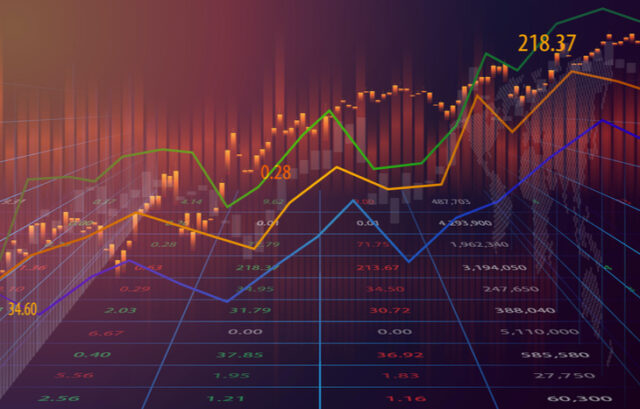
The world of trading isn’t for the faint-hearted. It is estimated that somewhere close to three-quarters of beginner traders lose money in their first year of trading. Contrary to what some people suggest on social media, it isn’t an easy or quick way to make money.
Like anything in life, becoming successful at trading involves investing time, resources, effort and money. However, if you are committed to learning how the industry works, you can give yourself a fighting chance. As a novice, a few tips are crucial to ensure you do not have a short-lived and disastrous financial trip into the world of trading.
Returning money from your trade is the sole purpose of any trading journey. Of course, it helps if you have a passion for finance and markets, and the best traders have different methods that help them achieve success. Today, we will be discussing five tips that will help you succeed.
Understand the News

The stock market is heavily influenced by world news. The commodities, forex and cryptocurrency markets are seriously impacted too. The importance of understanding the information is the backbone of any successful strategy. Anticipating economic policy announcements or central government legislation can form a solid foundation for a high-quality trading strategy.
It isn’t just a case of understanding the news. Otherwise, a lot of people would be making money from trading. You need to understand other areas of the economy as well. For example, economic news, such as a rise in interest rates, will affect the stock and forex markets. It is your job to find out why, before investing in these markets. In addition, you should learn about more specific economic terms such as inflation and deflation.
What is deflation? How will it affect your investment? Is inflation good or bad for my trading strategy? Knowing the answers to these basic questions should be an essential starting point before considering placing your hard-earned money into a live trading market.
Use Demo Software
This is a good tip for any industry. If you want to understand how a live trading platform looks, why not take the time to research the feel of the market before using your actual money? There are dozens of pieces of demo software available that mimic fundamental markets and allow you to trade without using real money.
You will then be able to implement your knowledge in a live arena, giving you a better chance of succeeding in a volatile and turbulent market.
Seek Guidance from Professionals

When looking to establish yourself as a trader, reaching out to people who have succeeded in the industry is a good start. Professionals in all areas often have a mentor they look up to when learning specifics about the industry. With the vastness of the internet available at your fingertips, you can reach out to experts and ask questions easier than ever before.
However, you can also attend physical seminars and talks to learn some tips that these people would recommend to a novice trader. This isn’t bad advice. You can also seek advice from legendary traders in their field, and there are plenty of resources online.
Think about learning to drive. You don’t just get behind the wheel of a car and start driving on busy roads. Instead, you sit next to an instructor who can guide you and teach you the basics. As well as learning the basics, you can find helpful tips and things to look for, which is what a good mentor will offer you as well.
Risk Management

Since many markets are precarious, managing risks while operating in these sectors is essential. One of the great things about risk management in trading is that it is a broad spectrum.
For example, if you want to trade forex, commodities or stocks, you will need to learn about the specific criteria that drive the prices. There’s a risk of losing money in any trade you make, even if it seems that it guarantees a profit.
Each of these markets has its variables, varies in size and can be impacted differently by the same news. For example, if you trade commodities such as gold, you’ll need to understand that news about high inflation will help your gold investment but it can damage stock investments.
Risk management is ubiquitous among all traders. Professional traders who operate in all these markets will have risk management strategies that help them remove any negative emotions from their trading. Negative emotion is one of the crucial factors that causes traders to lose money. This applies to beginners and experienced traders.
One way to counteract this is by setting up suitable stop loss and take profit limits for your asset. You remove any chart-watching and negative emotions by setting up these limits and allowing them to trigger automatically. Another method is dollar cost averaging – this is where you purchase your asset as it drops in value, to reduce your average entry price. Both of these methods are solid tips used by traders of all abilities.
Research Trading Strategies

With so much chart analysis and so many methods used in the trading world, it can be a maze when you’re looking for a method that works for you. Some basic trading methods, such as swing trading, are easier to learn than some other patterns you can find, which are more technical.
Ensuring you understand the essential underlying variables that often drive prices up or down is the most important place to begin. Once you know all this information and what can influence significant price changes, you can use this information to your advantage.
However, it is essential to note that your capital is always at risk. Even if you perform due diligence, have adequate risk management and fully understand the market you are trading in, you can still lose all of your investment. Markets are volatile and react to several variables, so being aware of the potential loss is vital if you want to create a pathway for yourself in this sector.
Trading is open 24 hours a day across different regions of the world, starting from 5 p.m. EST on Sunday and ending at 4 p.m. EST on Friday.









